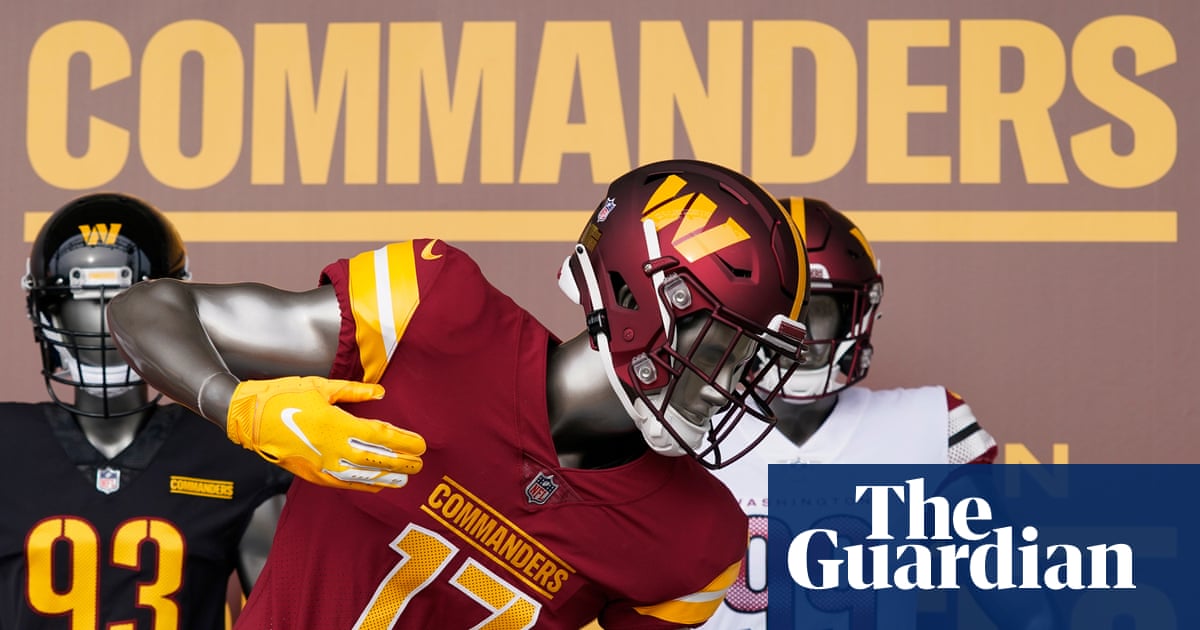Trump Demands Name Changes for Commanders and Guardians: A Controversial Stance on Sports and Sensitivity
In recent news, former President Donald Trump has entered into a debate surrounding two prominent sports teams: the Washington Commanders, formerly known as the Redskins, and the Cleveland Guardians, who were once called the Indians. Trump expressed his desire for both teams to revert to their former names on his social media platform, Truth Social, invoking the legacy of these names while also stirring controversy regarding their implications.
A Call for Tradition
On a Sunday post, Trump stated, “The Washington ‘Whatever’s’ should IMMEDIATELY change their name back to the Washington Redskins Football Team …. Likewise, the Cleveland Indians, one of the six original baseball teams, with a storied past.” His remarks imply a sense of nostalgia and reverence for historical sports legacies, viewing the original names as intrinsic to the team’s identities.
Reactions from Team Management
However, the response from the teams has been clear and determined. Josh Harris, the owner of the Washington Commanders, reaffirmed earlier statements that the name is here to stay despite Trump’s push. Similarly, Chris Antonetti, the president of baseball operations for the Guardians, has indicated that there are no plans to reconsider the name change, suggesting that the organizations are committed to modern sensibilities around cultural respect and sensitivity.
Legal and Political Maneuvering
Trump’s influence may extend beyond just public opinion. He hinted at taking action against the Commanders by threatening to block their plans for a new stadium at the historic RFK Stadium site unless they changed their name back. The implications of this are complex; although the site was once federal land, Joe Biden’s administration signed a bill transferring control to the D.C. city government on a long-term basis, raising questions about the feasibility of Trump’s threats.
The Context of the Debate
The push to change these team names arose from longstanding concerns over racial insensitivity and cultural appropriation, particularly toward Native Americans. The Redskins name was abandoned after years of public outcry and protest, while the Indians transitioned to the Guardians in an effort to shed a moniker considered antiquated and offensive. This context is crucial in understanding why Trump’s calls for a name reversion may be met with significant backlash from both the general public and advocacy groups.
Broader Trends in Society
Trump’s invocation of tradition resonates with a segment of the population that feels disconnected from rapidly changing cultural norms. Yet, this pushback against progress involves navigating a tense landscape where issues of race, identity, and historical memory collide with sports and entertainment. These discussions happen in a broader context where corporations and institutions increasingly take stances on social issues, often leading to reprisals from political figures like Trump who appeal to traditionalism.
The Impact on Sports and Fans
The debate surrounding team names also spills into the realms of fandom and community identity. For many fans, these names symbolize pride and heritage. Conversely, those advocating for change argue that they perpetuate stereotypes that harm marginalized communities. This ongoing discussion highlights the complexities of balancing tradition with evolving societal values, making the conversation about sports team names far more intricate than a simple rebranding issue.
The Current Political Climate
While Trump’s demands stir the pot, he faces a political environment where support for stringent measures against cultural appropriation and racial insensitivity is growing. Recent polls indicate declining support for his hardline stance on various issues, including immigration and, by extension, the sensitivities surrounding cultural representation in sports.
Other Headlines Related to Trump
In addition to his remarks about the Commanders and Guardians, Trump has made headlines for a variety of other controversial issues. From pledging to aid Afghans detained in the UAE to facing diminishing approval ratings on immigration policies, these actions form part of a broader narrative of his second presidency. Furthermore, his aggressive advocacy for fossil fuels has been met with climate concerns, as critics warn that such policies could reverse years of progress in environmental activism.
The interplay of Trump’s actions in the sports world and broader political landscape continues to engage public opinion, illustrating the profound connections between sports, culture, and identity in America today.



